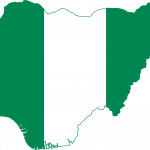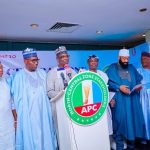There was a Northern Nigeria in the 60s to the early 80s. I saw that north, and I witnessed it and experienced it.
It was monolithic, cultured, enlightened, multi ethnic and multi religious , a tolerant North in which there was mutual respect for each other. There was no competition for superiority or domination by any ethnic group or religion. Rather, the relationship between the people was characterised by cooperation rather than confrontation. To be a Muslim or Christian was met by the reaction: So what? People were judged by their social dispositions rather than which religion they profess. Religious preachings and affairs were voluntarily restricted to the mosques or churches. Conversion to any of the two religions were purely private affairs based on the principles of “there is no compulsion in religion ” or “live and let live” , with most professing what was inculcated by inheritance and by environment. Social justice defined both private and public discourse. There was no discrimination on either ethnic or religious grounds. Friendships were based on mutual interests rather than sentimental considerations.
Honours were earned based on credibility rather than anything else. You were left with your conscience on moral issues , bearing in mind that one day, we shall be judged. In short, the ten commandments, which is the bedrock on which all the Abrahamic religions were established, were the basis of social relationships in the north. Missionary institutions existed side by side with public schools in some areas.
The interfaith relationship was more pronounced in the northeast with its multi ethnic groups. Mixed families were common. It was not uncommon to see a house where members of a family professed different religions without qualms. In short, there were hardly any families that were not related closely to a Muslim or Christian by blood or marriage in the northeast zone, a situation that bred a culture of tolerance.
While my area was entirely Muslim , my primary school teachers were 98% Christians, mostly from the Hawul local government area of Borno state. Despite our young age, they had never under any disguise, tried to take advantage, and introduced us to the Christian faith. And to us, we addressed every teacher as Mallam, irrespective of which religion he professed. You were judged by your profession rather than by your faith. This state of affairs was to continue in my secondary school days as I went to a one-time missionary secondary school in Waka, Biu. The students were predominantly Christians, but that’s was where it stopped. Everything was secular. Your faith was of no importance. Relationships were based on peer pressure with ” birds ( bads?) of the same feathers flocking together. ” The only intimidating aspect of life then was the rigid military style discipline based on seniority. For the fear of your seniors was the beginning of wisdom.
Throughout those times, religion was purely restricted to the private realm and not yet politicised . There was no religious extremism, nor were there religious extremists. Moderation and tolerance were the guiding principles of co-existence in the north.
Then in 1978, an event occurred which unknowingly and unintentionally, was to be the beginning of actions which will set in motion a chain of events to negatively change the narratives of social relationships in the north , and ultimately to be manipulated by both internal and external enemies of the region.
During the 1978 debate on the draft of the Nigerian Constitution by the constituent assembly in preparation for the transition to a civilian government, the Northern delegation from the predominantly Muslim Northern states walkout when their demand for a Sharia Court of Appeal at the federal level, to have jurisdiction on Islamic and civil matters, was rejected by the delegates from Southern Nigeria based on the country’s secular status. This unfortunately and unintentionally was to be the beginning of the politicisation of religion.
Curiously, that action was to coincide with other developments within the religious realm but outside the political space, which will forcefully gravitate towards each other voluntarily as well as by manipulation. The same year in which the action took place, 1978, was to be the year in which the Izalatul Bid’ah Wa Iqmatus Sunnah, a Wahabi Salafist movement was founded by Sheikh Sama’ila Idris in Jos, with Sheikh Abubakar Gumi acting as a spiritual father.
Meanwhile, within Christendom, the Pentecostal Christian movement was gradually gaining popularity within the country . Both movements claimed to be reformists in nature, which were advocating a return to puritanism by the practitioners of both faiths. With the emergence of these groups, the conventional “Darika” based Mallams and pastors of the conventional churches yielded ground.
Unfortunately ,beyond this historical development, was the beginning of the gradual shift of the assessment of the nation’s challenges and solutions from a purely dialectical and materialist perspective to a moral and spiritual perspective.
The economic crises that set in by the early 80s necessitated a military takeover, which was to compound situations, further accelerating the popularity of these movements as the solutions implemented to curb the crises tended to have more negative impact on the most vulnerable groups in the urban centres ( the proletariat and the lumpen proletariat), from which and where both the movements’ supporters were recruited.
The inability to find a solution to the crises by the the ruling class as represented by the government, led to a loss of faith in the state, especially as the elites proved to be the major beneficiaries of state policies such as the privatisation process or the liberalisation of the economy which hit the vulnerable groups hard.
Deprived of and denied livelihood through gainful employment, they were forced to live from hand to mouth because of meagre earnings which could hardly sustain the people; and deprived of any relief by the state as a result of inhuman subsidy removals, with agricultural inputs becoming costly in an agrarian based society foreclosing his chances of being a farmer, he not only lost faith but tried to find an alternative.
Thus, the failure of the system was to make the alternatives preached by both the Islamic Salafist and the Pentecostal movements attractive. Our political and economic crises were made to be the result of moral decadence and disobedience to God rather than wrong economic policies by a rapacious greedy elite class. Repentance and confession of our sins were touted as solutions. The establishment of a Sharia compliant society was touted as the remedy to challenges by the Salafist movement, while prosperity through miracles ,no matter how absurd, became the gospel of the pentecostal movement.
As the economic crises hit a bit harder without solutions in sight, religion as described by Marx provided a delusion of solution rather than accountability and transparency. This was to get the north highly intoxicated on religion .The political class was not unaware of these developments. They were watching and decided to capitalise on it.
Lacking any ideological base, and sometimes with questionable antecedents, religion became the grounds of electoral support for politicians with temptations of its politisation . This forced even conventional Mallams and Pastors to take sides, there by forsaking their neutral roles. Religion and ethnicity were exploited and manipulated by politicians.
The multicultural and multi ethnic nature of the north provided a fertile, as well as a volatile ground for such . The politisation of religion was to finally find its expression in the agitation for the implementation of the Sharia. This was to polarise the entire region along ethno-religious lines between the proponents and opponents of the Sharia with serious consequences from which it has not recovered. This led to a breach of trust between the various communities of the north, destroying the fabric of unity that had bound them together. The blood shed, in the course of the agitation and resistance to the Sharia, will continue to haunt the north for a long time to come.
In the past, the joining of the OIC generated suspicion and led to verbal exchange , it never degenerated into physical confrontation. Not so the Sharia.
Religion, rather than ability, competency, and integrity, has become the yardstick for being elected to elective offices. Ideology, principles, antecedents, and moderation have all yielded ground. The north has become a hostage to ethnic jingoists and fanatics , with extremists and anarchists on all sides dictating its life and pulling it apart..
The monolithic, cultured, enlightened, multiethnic, multicultural, and tolerant North, symbolised by the Ahmadu Bello, promoted “Dan Arewa,” which I saw, lived, and experienced is no more. It has been sacrificed on the alter of ethnic jingoism and religious extremism. Only a sober and genuine reconciliation can bring it back.
Anarchy has taken over the north so much so that there is no single day in which , somehow , somewhere, somebody is not killed.
It’s time the twin evils of ethnic jingoism and religious extremism are fought. Failure will lead to a time when the region will find itself empty to be reaped by those who did not sow.
Abdullah Dan’azumi Mohammed Golkos





